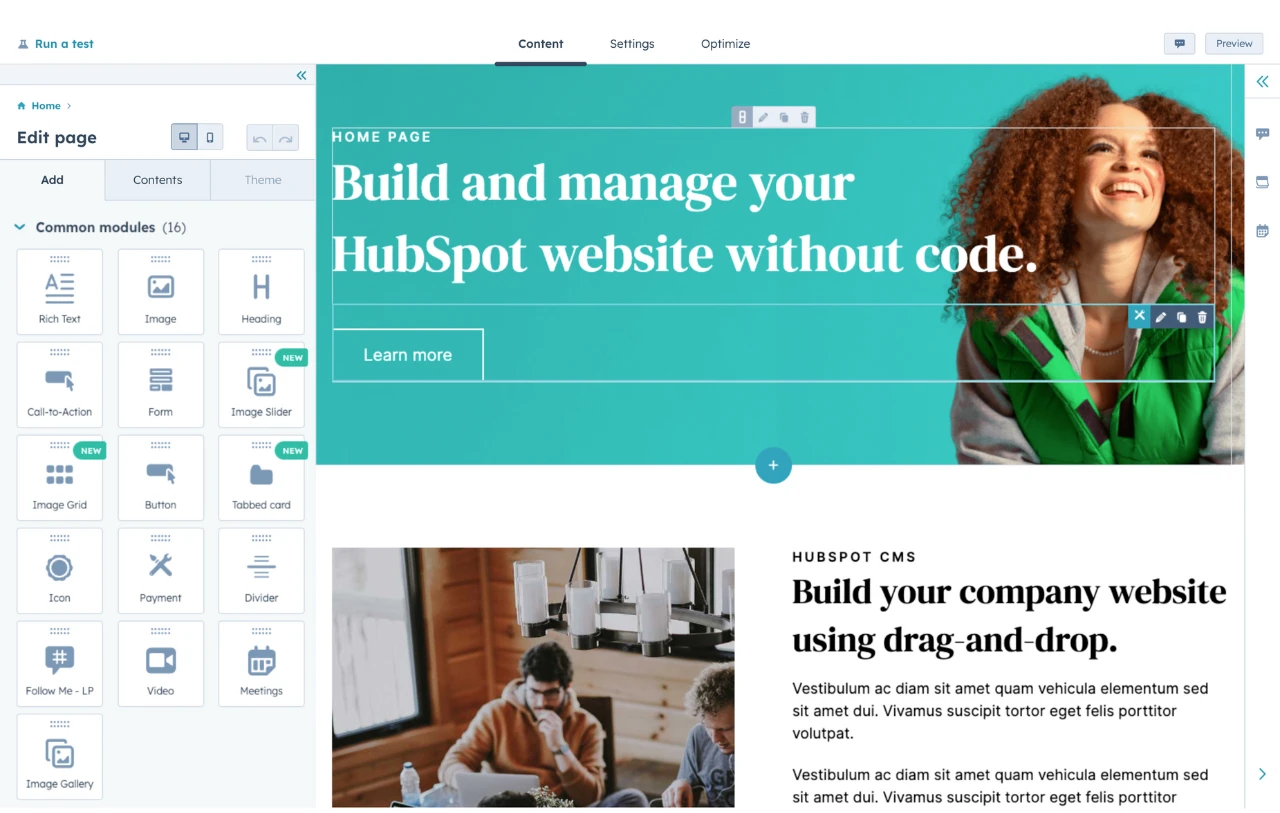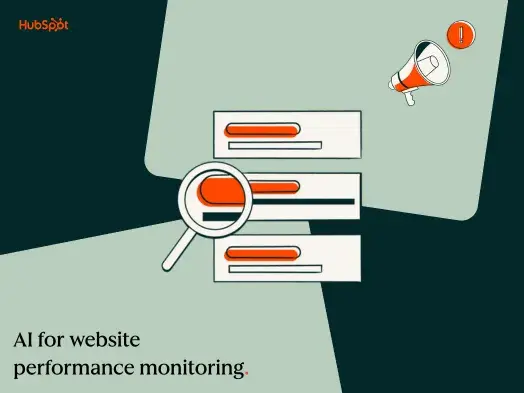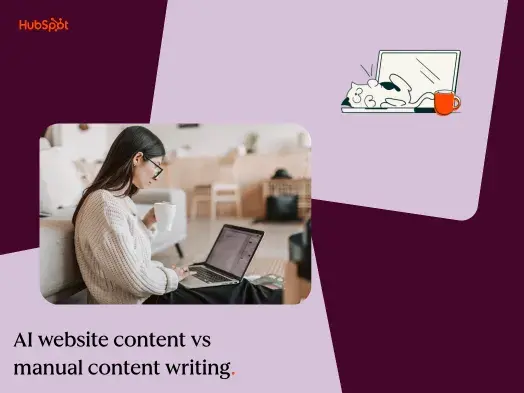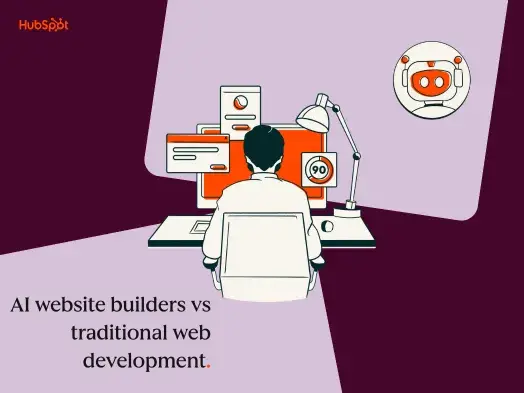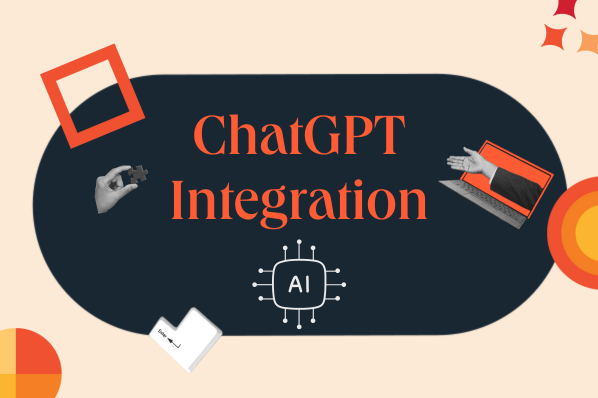In this article, I’ll share more about how AI-powered search works, how it could help your business, and practical tips you can follow.
Table of Contents
- What is AI-Powered Site Search?
- How Does AI-Powered Site Search Work?
- Benefits of AI-Powered Website Search
- AI Site Search Example
- How to Implement AI-Powered Search on Your Website
What is AI-Powered Site Search?
AI-powered search is a new functionality, which lets site owners provide the most relevant search results to users by using artificial intelligence. The mechanism behind the search bar learns from past purchases and queries from users, common typos, and peoples’ search intent (for example, if the phrase indicates the person is just window shopping or looking for a specific item).
You wouldn’t be wrong thinking that companies already analyze past orders and on-site behavior to improve their search results. Until now, however, they always had to do it manually, with the help of an engineer.
AI-powered site search requires far fewer human intervention to change the search algorithm, as the engine improves its accuracy over time.
How Does AI-Powered Site Search Work?
AI-powered site search is an addition — or an upgrade — to the traditional search. It uses natural language processing (NLP) and machine learning (ML) to better understand a searcher's intent, including synonyms, context, and even misspellings.
Not only does it improve the search experience, but most importantly, it provides more accurate and relevant results. Websites are indexed semantically, which means that instead of focusing on keywords only, AI understands the intention behind the search.
Thanks to ML, which analyzes user behavior including clicks and time spent on a page, the relevance of search results is improved constantly.
With time, AI becomes so good at recognizing searcher’s intent that it can provide personalized suggestions based on a person's profile and behavior. To make the user experience even more interactive, AI also offers features like intelligent autocomplete, voice search, and image-based searches.
What’s really impressive to me is how quickly AI-powered search can adapt to users’ needs. This is thanks to tracking real-time behavior and understanding complex queries, which allows it to reformulate queries and correct spelling.
Benefits of AI-Powered Website Search
More Accurate and Relevant Search Results
AI-powered search bars can provide relevant results quickly and easily, because they understand your intent and adjust results in real time. This is a win-win for businesses and customers alike.
What I particularly appreciate about these intelligent search engines is that they don’t necessarily generate the exact same results for everyone — even if each person uses the same search query. It can take your past purchases or on-site actions into account and use this to deliver tailored results.
From a customer perspective, you save time on refining your search or even applying filters manually to remove any unuseful results. This leads to higher customer satisfaction, which means that the business can strengthen its relationships with buyers.
Saves Time
When running a Google search, it often takes a lot of trial and error to find the answer to your query. Thanks to AI-powered search, you can significantly reduce that time because the
AI can anticipate user intent and provide suggestions right away. It even provides auto-fill options when you start typing. This easiness and efficiency improve customer experience and make visitors engage with the website on a deeper level, which can translate to sales.
To learn more, I spoke with Muhammad Ummar Rashid, SEO Specialist at Digital Willow. He explained how impactful this can be.
“We‘ve witnessed a 25% increase in on-site engagement and a 15% rise in conversion rates since integrating an AI-powered search option akin to Rodo’s intelligent search bar,” Rashid says.
By offering individualized and pertinent product recommendations and cutting on the search time by 30%, AI search has greatly enhanced the user experience.
“In addition to improving customer satisfaction, this efficiency has raised the average time spent on our website, which has improved revenue and retained customers,” adds Rashid.
The AI search tool helps the brand better understand its client needs by analyzing user behavior in real-time, letting them adjust their marketing strategy and inventory accordingly.
Personalization
You know the Netflix feature that says, “Based on you loving [Movie 1], we think you’ll be delighted with [Movie 2]”? Some AI-powered site search engines already do the same.
For example, say that you’re an online grocery store, and your customer has been buying vegan, gluten-free products for a while. They recently purchased frozen pizza from the category.
Next time they search for a “gluten-free, vegan ready-made meal,” you could show them other pizza tastes from the same company. Or, you could display complementary items that suit the category, like ketchup.
Typical search engines pale in comparison to this experience, as they can’t show that the brand truly gets its clients’ needs.
Increased Conversions
This goes without saying — the easier it is to navigate a website the higher the chance the visitor will explore it further and maybe eventually buy. The more complex it is, the higher the bounce rate. It is both as simple and as complicated as that.
The AI-powered search allows prospects to find what they’re looking for more quickly, which can positively impact conversions, especially for ecommerce businesses.
John Pennypacker, vice president of sales and marketing at Deep Cognition, told me that they implemented an AI-powered search functionality about eight months ago.
“The most significant benefit we‘ve seen is a 32% increase in conversion rates for visitors who engage with our AI search compared to those who don’t,” says Pennypacker.
The intelligent search bar not only helps users find products faster but also provides personalized recommendations based on their search patterns and previous interactions. Deep Cognition has found that users who receive these tailored suggestions are 2.5 times more likely to make a purchase.
Pennypacker adds that their “customer support tickets related to product inquiries have decreased by 18%, as the AI effectively guides users to the information they need. This improvement in user experience has contributed to a 15% increase in our overall site engagement metrics.”
AI Site Search Example
To complement all that theory so far, I thought I’d give you an example of how an AI-powered search bar works. Out of the ones I’ve seen, it's the car trading company Rodo that made the biggest impression on me.
Their AI-powered search was launched in February 2024 and is currently available in beta to all users. The very minute you go on their site, a pop-up comes up on screen that encourages you to use their AI search bar.
You see that it’s not your regular search bar straight away. Rodo encourages you to phrase your request as if you were speaking to a salesperson.

I decided to put myself into the shoes of a family of seven and used one of the suggested questions:

After entering the query, the search bar asked me for my zip code to match me with vehicles currently available in my area. After I did that, it went straight ahead with its recommendations.
They brought forward a 2024 Mazda CX 90 3.3 Turbo S Premium, which Rodo believes offers the best value-to-price.

The first thing that I noticed is how clean the results were: just a nice photo paired with the price and model name with a “learn more” option. When I think of a typical search engine, this is still not what I expect. I’m so used to a block of text or several images cluttered together in the above-the-fold of the site.
Now, design aside, I’m not an expert when it comes to cars. So, I wanted to check if the Mazda actually has more than seven seats, as I’ve requested in my query. A quick Google search revealed it has capacity for up to eight, so Rodo’s AI search did a very good job here.
Whether the price for the car is what I would call the “best deal” is up for debate. I would probably be able to tell you what I thought if I was actually looking to buy a new vehicle.
But what if I didn’t like the car or the price tag? Rodo thought of this, giving me a small “replace” button to reshuffle results and an “Explore other great deals” section below. I also got an option to compare each car against one another on a separate page.

After trying out Rodo’s intelligent search, I can easily see myself expecting such a user experience from all the brands I buy from in the future. I recommend trying it yourself, and you’ll quickly think the same.
How to Implement AI-Powered Search on Your Website
You’re probably wondering — what does it take to set up an AI search engine for your business? There are two main paths. You can either build your own solution from scratch, which requires time and resources (but will fit your requirements perfectly), or you could look into the available AI search tools and plugins, as there are a few already on the market.
Method 1: Build your own AI-powered site search engine.
There are four major steps involved in creating a custom AI search module:
Step 1: Identify the goals for your AI search bar.
The answer is more complex than just “giving more accurate search results.” What do you want to offer to users, and how will it help you meet your business goals?
This largely depends on the type of business. If you’re an ecommerce company, it will likely be boosting the average order value. However, if you offer digital services or a SaaS, it could be more about personalizing access to content or automating tasks for your users.
Step 2: Spot the specific features and processes that AI search can support.
Now that you’ve answered the “why,” it’s time to go through your website architecture and user journey. Identify the specific actions you want to accelerate and which processes require your search engine to pull from past purchases (or use its analytical skills).
Step 3: Consider which AI technologies you need to reach your goals.
This is the most technical part, so you should work in close cooperation with your development team. NLP is the single most important technology you’ll need, as it lets AI search understand and analyze text input.
But if you’d like your users to search with an image (for example, add a photo of a yellow dress and find something similar on your site), then you’d also need computer vision to analyze images.
On top of your AI’s capabilities, there’s also the case of integrating it into your existing systems. This part of the process, of course, is a task for your developers, but you can imagine that it can take a while to build and release your engine.
Step 4: Train and test your tool ongoingly.
After using AI for a while, we know that it can be subject to bias. That’s why it’s so important to monitor and regularly update your models using fresh data based on user interactions and performance. Verify what impact the AI features have both on your business and client behavior. Track their engagement, seek feedback, and implement improvements when necessary.
The approach I’ve described above is best suited for larger companies that have time and funds to maintain and refine their AI-powered search engines. It gives the ability to tailor its functionalities perfectly to their needs.
But if you’re a smaller company or need assistance building your search engine, there is an alternative approach to building your own.
Method 2: Use a tool.
Trying out a ready-to-use tool or plugin from your CMS provider is also an option. I recommend testing it out first to see if it’s good enough for what you need. I took a quick look at Boost AI Search & Filter from Boost Commerce, which is made specifically for Shopify users and is available on a monthly subscription.

So, how does it work? When a customer starts looking for a specific product, the AI pulls up automatic suggestions.
To understand the searcher's intent and context, it uses semantic search. It looks at past purchases or searches, suggesting items like “skinny jeans” or “skater dress” if that’s what the customer was looking for recently. By offering suggestions, it significantly shortens the time it takes to find the right product.
The AI-powered search bar is part of a broader AI ecosystem, which enhances the customer experience. After getting tailored suggestions based on the user’s query, the visitor is further tempted by being offered additional products matching what they wanted to buy in the first place.
The AI can do this by analyzing customers’ past purchases and “frequently bought together” bundles, which increases the average order value (if the client falls for its suggestions, of course).
AI is Set to Change our On-Site Search Habits
While AI-powered site search is still an emerging feature, it’s my bet that it will quickly become a user favorite. It not only shortens the time spent on finding the information, service, or product searchers need. It also lets companies create less cluttered search results and bring the “best match” results forward.
Knowing what each person is searching for (and has bought in the past) also means you can personalize your recommendations. This is something people already expect, so using an AI engine seems like a no-brainer.
The good news for any tentative business is that you don’t have to build an AI search functionality from scratch. You can turn to a ready-made tool or CMS plugin to see if it’s something worth including in your business.
Of course, no search bar will read your customers’ minds — but those powered by AI can come pretty close.
Artificial Intelligence


